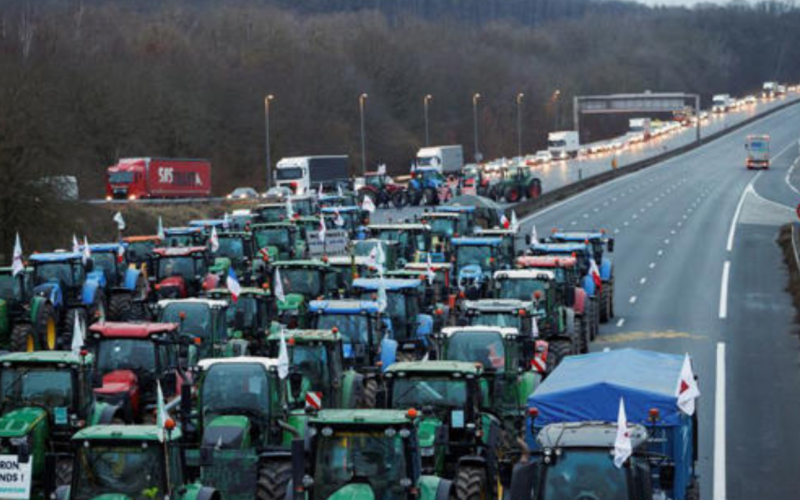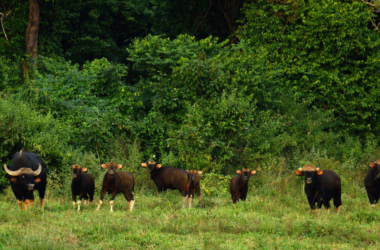Over the past year, European farmers, grappling with soaring operational costs and stringent environmental regulations, have emerged as a potent force of discontent, staging protests and blockades across the continent. The agricultural backlash, fueled by economic challenges, red tape complaints, and concerns over global competition, poses a significant threat to the European Union’s (EU) ambitions, just months before crucial elections to the European Parliament. This article delves into the grievances of farmers, the political ramifications, and the potential impact on the EU’s green agenda.
Farmers like Jean-Marie Dirat in southwest France face a daunting economic landscape. Soaring costs, driven by expensive fertilizers, fuel, electricity, and pesticides, have led to financial strain. Dirat, reflecting the sentiments of many, expressed that despite managing a larger farm than his grandfather, financial hardships prevent him from even paying himself a salary. The cost surge is compounded by red tape complaints and restrictions on water usage, further intensifying farmers’ discontent.
The discontent is not confined to France; farmers in Germany, Poland, Romania, and Belgium are voicing similar grievances. In the Netherlands, a new farmers’ party made significant gains in recent elections, highlighting the pan-European nature of the farmer uprising. The protests underscore a clash between the EU’s commitment to reducing CO2 emissions and the imperative of achieving self-sufficiency in food production post-Russia’s invasion of Ukraine.
Political leaders, especially far-right figures like Marine Le Pen in France, are capitalizing on farmers’ woes to criticize the EU’s policies. Le Pen’s party advocates an exit from free trade deals, citing the EU as a hindrance to farmers rather than an asset. Opinion polls reflect significant public support for farmers, with 87% of the French population backing their cause. Farmers’ concerns resonate with voters, posing a challenge for leaders like Emmanuel Macron.
National governments, including France and Germany, are scrambling to address farmers’ concerns, with adjustments to proposals aimed at ending tax breaks on agricultural diesel. The European Commission has also introduced new measures in response to the protests. However, these measures might not be sufficient to quell the rising discontent, threatening to impact the EU’s green agenda.
The upcoming European Parliament elections, just five months away, could witness a significant shift. Poll projections suggest the formation of an “anti-climate policy action coalition,” endangering the EU’s environmental goals. Far-right parties aim to capitalize on the farmer discontent, seeking to Europeanize the conflict and attract rural voters across member states.
The growing farmer unrest across Europe poses a formidable challenge to the EU, influencing public opinion and potentially reshaping the political landscape. As farmers demand policy adjustments to alleviate economic pressures, the EU finds itself at a critical juncture where striking a balance between environmental goals and agricultural sustainability becomes imperative. The outcome of the European Parliament elections will determine the extent of the impact, with the agricultural backlash serving as a poignant reminder of the delicate equilibrium required in shaping the EU’s future policies.








